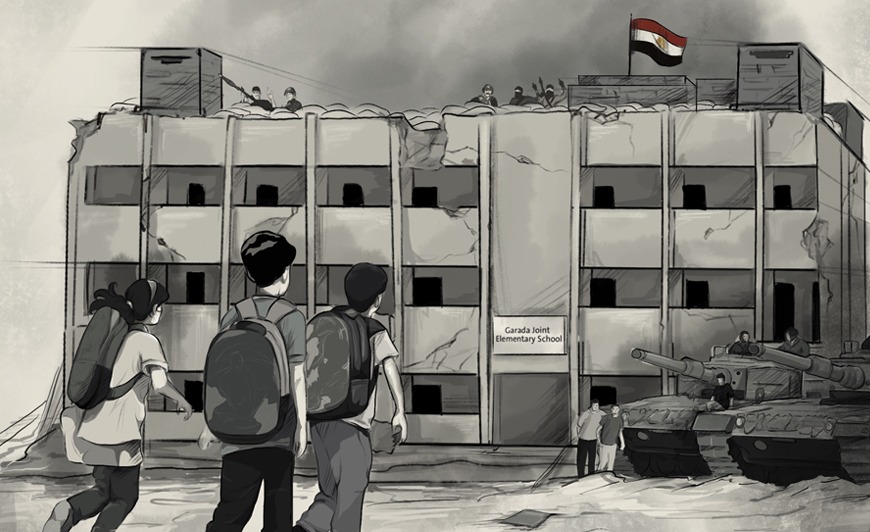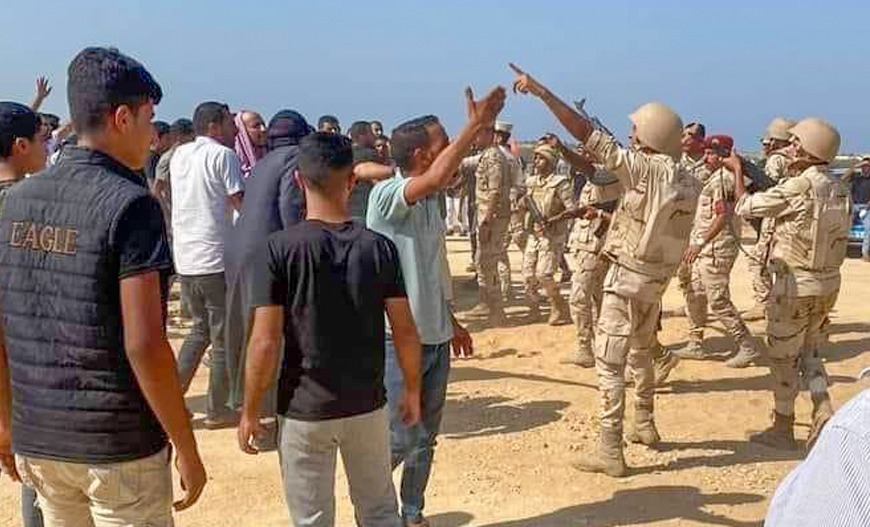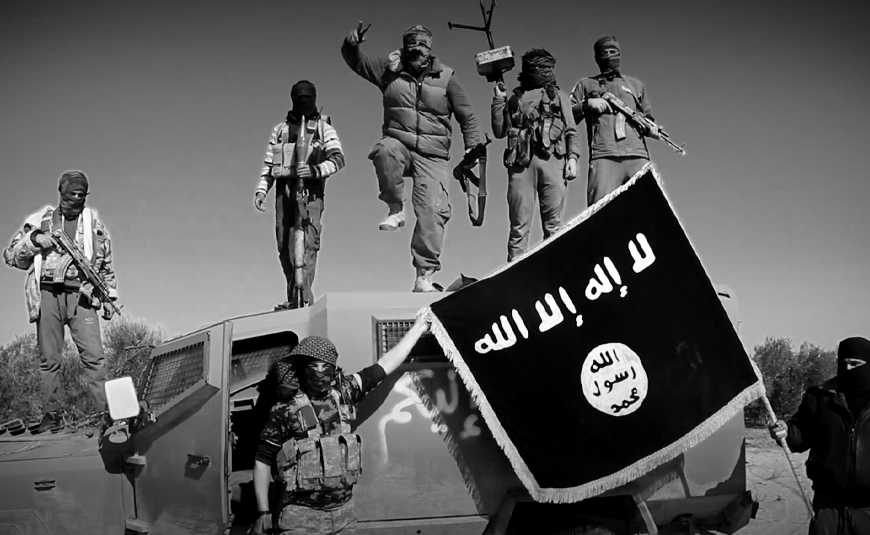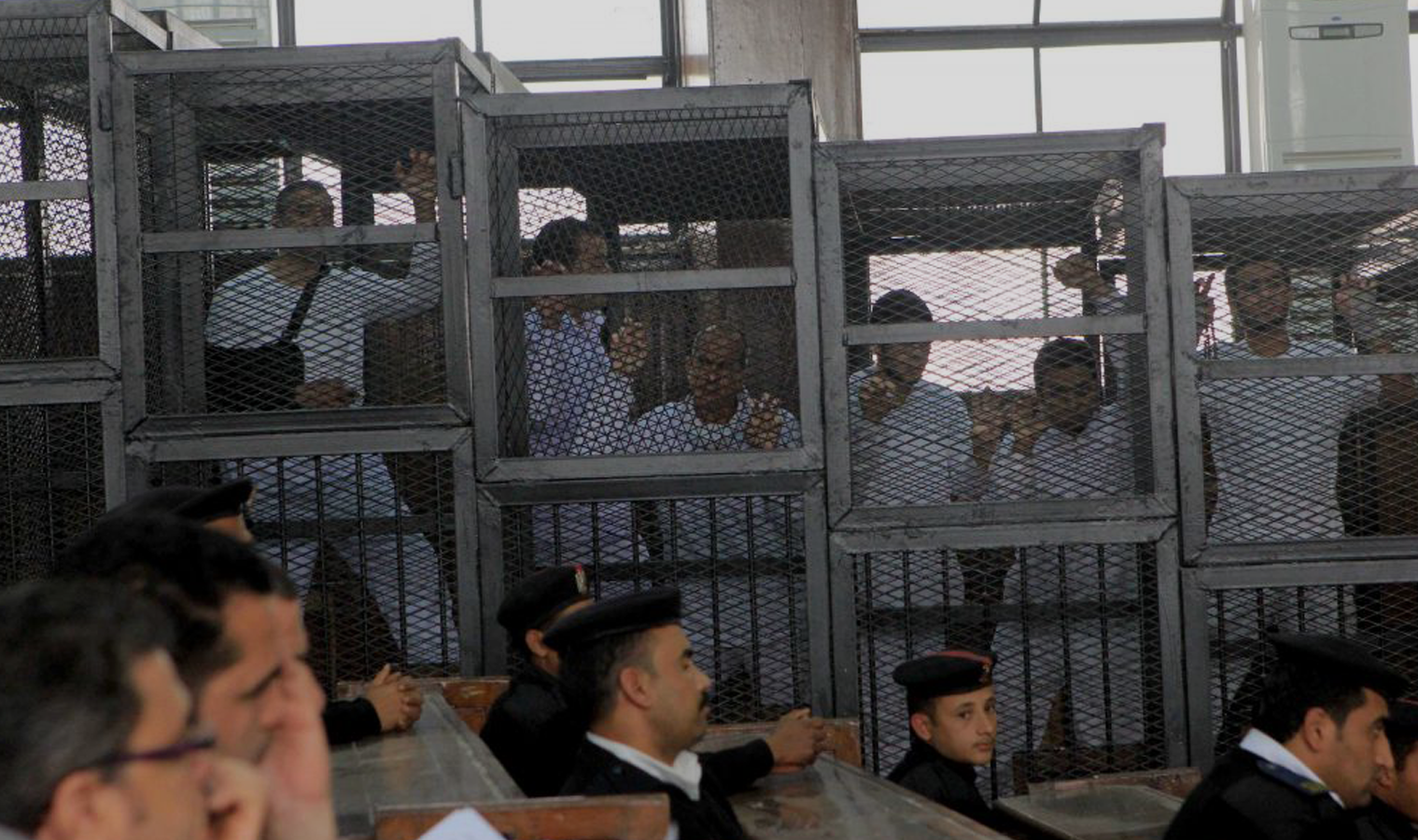Executive Summary
At the end of 2013, military operations escalated between Egyptian government forces, especially the army, and Islamic extremist armed groups. These extremist groups later declared, in 2014, their allegiance to The Islamic State of Iraq and Syria (ISIS) and called themselves “Sinai Province”. Since its inception, Sinai Foundation for Human Rights has provided compelling reports on the gross violations of human rights and the rules of war committed by both sides of the conflict. But one key aspect of these violations has not been yet sufficiently addressed, which is violations related to the right to education. This report aims to make up for this lack of information, especially since it is being issued in 2024, after the “Sinai Province” group has been significantly eliminated and after multiple statements by Egyptian officials, including President Abdel Fattah El-Sisi, about the return of life to normal in North Sinai.
Systematic Violations
The report documents how armed conflict over the past decade has led to a severe deterioration in access to education for children and students and the protection of the rights of teachers and administrators in North Sinai. All parties to the conflict have systematically attacked schools and educational institutions, violating rights protected by the International Humanitarian Law, International Human Rights Law, and relevant international conventions and agreements on human rights signed and ratified by the state of Egypt, all of which protect educational institutions, educational processes and their participants, even in times of emergency and armed conflicts.
Rigorous evidence gathered by the foundation shows that these violations were systemic and not individual cases. Members of "Sinai Province" and the Egyptian government forces were involved to varying degrees in the systematic violation of the right to education in five cities in Northern Sinai, covering a wide range of areas. These cities include Rafah, El Sheikh Zuweid, Al Arish, Bir Al-Abd, and Al-Hassana, over consecutive periods for several years. The foundation is publishing an interactive map that serves as a complementary database to this report, displaying a larger volume of evidence of the 135 schools which have been violated. The map includes precise coordinates of schools and exclusive visual materials from dozens of schools in the cities of North Sinai Governorate. It serves as an open-source reference, reflecting the actual reality accessible to government officials, as well as researchers and journalists.
Grave Violations
Among the systematic and most common violations documented in the report, the Egyptian "law enforcement" forces, combined with the army and the police, particularly the army, have been involved in the destruction of a significant number of schools without providing a real alternative for the students of these schools. Additionally, the army and police forces have also been implicated in targeting some schools during artillery and aerial bombardments. The foundation has documented the destruction of 73 schools in the cities of North Sinai during the period covered by the report.
At times, when the army forcibly displaced the residents of some villages, they left the schools there closed without demolishing them, but also without providing a suitable alternative for the students of those closed schools. The foundation has also documented the closure of 7 schools in the cities of North Sinai for varying periods during the period covered by the report.
In addition, the army and police forces have also been implicated in using schools for military purposes, such as emplacement them as checkpoints and surveillance points, converting them into supply and logistics camps, or as military bases during operations. In some cases, these schools were evacuated of students, and the educational process was stopped. However, in other instances, the violations were even more severe when the army used some schools while students and teachers remained inside, exposing them to serious risks. The foundation documented the use of 49 schools for military purposes in the cities of North Sinai for various long periods of time, during the period covered by the report, some of which are still serving as military barracks at the time of publishing the report.
In the same context, "Sinai Province" group has also been systematically and repeatedly involved in the military use of a number of schools, from surveillance to demolition and destruction. They also carried out various assaults on male and female students and teachers. Additionally, members of the terrorist group have been implicated in stealing school properties, including cash and computers, among other items. "Sinai Foundation" documented the destruction of 4 schools by this group, in addition to the use of 2 schools for military purposes, with members of ISIS occupying them for periods ranging from minutes to hours as a precaution against military airstrikes.
This report elaborates on each type of these violations and describes them within the framework of International Human Rights Law and International Humanitarian Law (applicable in times of armed conflict). It provides substantial evidence and case studies collected by the Foundation's research team.
Other Indirect but Impactful Violations
In addition to the direct violations of the right to education, there have been other human rights violations in North Sinai that did not directly target the educational process and its constituents, including students and teachers. However, these violations have had a significant and detrimental impact on the right to education. Among the most notable of these violations are the severe and arbitrary restrictions on the freedom of movement for individuals and vehicles imposed by the Egyptian government forces throughout the years of the conflict, particularly since the end of 2017 with the initiation of what the authorities termed the "Comprehensive Operation”. These arbitrary restrictions, coupled with a nightly curfew that lasted for years, have hindered the ability of parents to transport their children to schools and the ability of teachers to move safely.
These restrictions also included cutting off transportation between North Sinai and the rest of the governorates in the mainland of Egypt, resulting in university students enrolled in institutions outside of Sinai falling behind in their studies for months. With the commencement of the military operation "Sinai 2018" the Ministry of Education decided to indefinitely postpone the start of the academic year in all schools in North Sinai, as reported by local news sources. As a consequence of this operation, the entire second semester for all educational levels, including preparatory and secondary school certificates, was cancelled in North Sinai schools. The Directorate of Education in the governorate further decided to cancel the exams for those levels, with the grades from the first semester being used as the basis for the second semester, as per an official statement released by the Directorate in April 2018.
Another grave violation that has had a significant impact on the right to education is the allowance for tribal groups supporting the army to recruit children under the age of 18 into armed conflict, whether in combat roles or logistical tasks. This phenomenon has escalated from 2020 to 2023, and it was documented by Sinai Foundation for Human Rights in a detailed report published in August 2023.
On September 15, 2023, the U.S. government, for the first time, included the Egyptian government in the list of governments that employ child soldiers in military operations in its annual Trafficking in Persons Report. This is an important step towards documenting and holding accountable violations that have been taking place in North Sinai for years without deterrence.
The U.S. government, in the report’s chapter on Egypt, stated that “during the period covered by the report, a non-governmental organisation issued a report that the (Egyptian) government coordinated and conducted joint operations with a militia in the Sinai Peninsula that allegedly recruited and used children, including the involvement of some of them to launch attacks directly”.
The Overall Picture of Education in Egypt and North Sinai
The issue of education in North Sinai, despite the uniqueness and severity of the violations and attacks that schools have endured and their military use, cannot be viewed in isolation from the deterioration of the education system in Egypt as a whole. In terms of expenditure on education, the government has continued to disregard the constitutional provision that mandates allocating 6% of the total national income for education spending (4% for pre-university education and 2% for higher education), with these percentages gradually increasing to align with international standards, by the fiscal year 2016-2017, according to the constitution.
Allocations for the education sector are only approximately 230 billion Egyptian pounds, representing just about 2% of the expected local gross domestic product for the fiscal year 2023/2024 (11.8 trillion pounds), which means that education allocations represent only one-third of the percentage stipulated in the constitution.
President Abdel Fattah al-Sisi made an unprecedented statement on Wednesday, June 14, 2023, regarding the budgets for education and health, stating that the necessary budgets for spending on health and education, as per the constitutional entitlement, are not available, saying, "The required figures are not available, folks, and we all need to remain present in the real world". This prompted the Egyptian Initiative for Personal Rights to demand, in response to this statement, that the president's acknowledgment be a starting point for a solution and holding accountable those who have ignored the issue, and a commitment to gradually meet the constitutional percentages.
The president's statements confirming that the government does not adhere to the constitution, even at a minimum, with regard to public spending on education and health, came just two days after the finance minister confirmed the opposite to the House of Representatives. On April 12, 2023, Finance Minister Mohammed Maait stood in the council, as his annual custom, to confirm that the government is committed to the constitutional minimum ratios for education and health: "we are committed to the constitutional benefits ratios, and no duplication has been taken into account in calculating expenses. The state’s general budget meets not only domestic, but also international standards in preparing budgets".
The day after the minister's speech under the dome, the parliament voted to approve the general budget submitted to it, despite its violation of the applicable Constitution issued in 2014. After many years of the government circumventing its constitutional responsibility towards the education sector, it is necessary to reconsider the government's financial policies, spending priorities and the specificity of historically marginalized regions such as North Sinai.
Formal and Inadequate Processing
Despite the historical marginalization to which North Sinai has been subjected, the government has not provided clear programs and plans regarding the provision of educational services, especially in the post-war years. On the contrary, the government's statements generally reflected inadequate plans and persistent attempts to hide the deteriorating reality. For example, in October 2021, at the beginning of the new academic year, local media quoted Hamza Radwan, undersecretary of the Ministry of education in North Sinai, as saying that "all schools in the governorate are fully operational today" on the first day of school, as the press report claimed. Based on government data, studies have been organized in North Sinai and "there have been no problems or obstacles witnessed," as the undersecretary of the Ministry of Education confirmed that a total of 11,165 students in primary, preparatory, and secondary levels have enrolled in 449 schools. The following year, in October 2022, Mr. Radwan stated that the number of students had reached about 120 thousand at various academic levels, and that the number of schools reached 652 schools, which means an increase in the number of schools operating in North Sinai by 203 schools, compared to the previous year, despite the fact that more than 130 schools in North Sinai were out of work according to the evidence collected by the report, which means that official statements contradict reality.
It is worth mentioning that the announced government figures on the number of schools actually located in North Sinai involve some exaggeration, as the foundation has monitored a number of schools mentioned by the published government data as separate schools, while the reality and the foundation's research prove that these schools are located within the same educational building and that these statements are most likely aimed at embellishing the truth. An example is Al-Farouk Omar School in Rafah, which is a single three-story building. Official data from the Ministry of Education mentions it as two schools: Al-Farouk Omar School for Basic Education and Al-Farouk Omar Secondary School.
It is clear from these rosy and conflicting statements that in the years of the hidden war in North Sinai and beyond, the Egyptian authorities relied on mobilization and propaganda means. Instead of revealing and announcing the truth and starting serious programs to address the education crisis in the cities of North Sinai, the state adopted methods and approaches contrary to reality. Theoretically, authorities facilitated a series of actions that were mostly fictitious, and did not contribute to maintaining the educational achievement of school students. For example, the governorate has enrolled children in areas that have been subjected to forced displacement in alternative schools, and announced easing the procedures for holding tests by allowing students to perform them in any other school inside North Sinai instead of schools where studies have been disrupted.
To demonstrate the success of this policy, the state authorities were more careful to announce figures that do not reflect reality, such as the numbers of students who passed their exams at alternative schools, rather than actually compensating children for missing lessons. The result was the continuation of formal success and the transfer of quite a few students to subsequent classes, while their parents and teachers say that they are not good at reading or writing, as the tests were only formal. If we take into account, in addition to this, the increase in dropouts and the eventual withdrawal from education, especially among girls, we have learned how alarming the future of Sinai's children and youth is, and how alarming the educational conditions are in the foreseeable future of North Sinai.
Related Postes
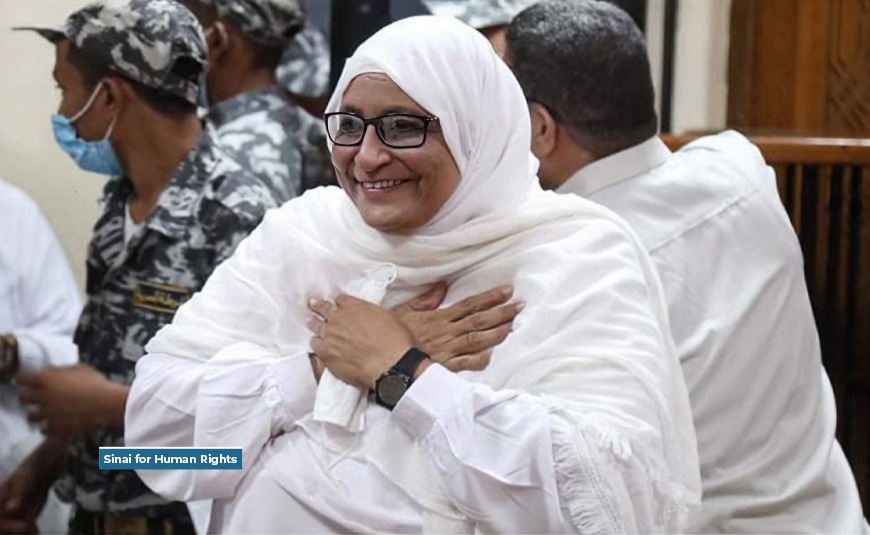 English content
English content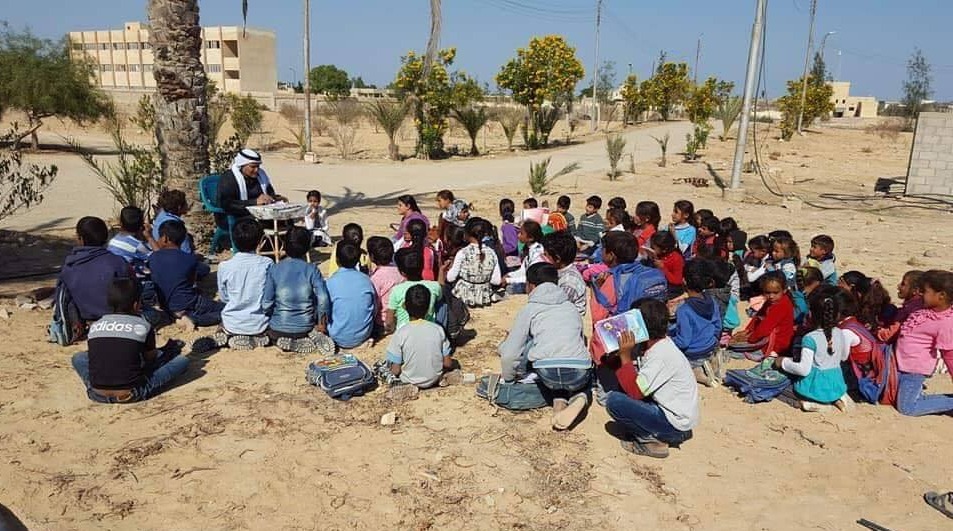 English content
English content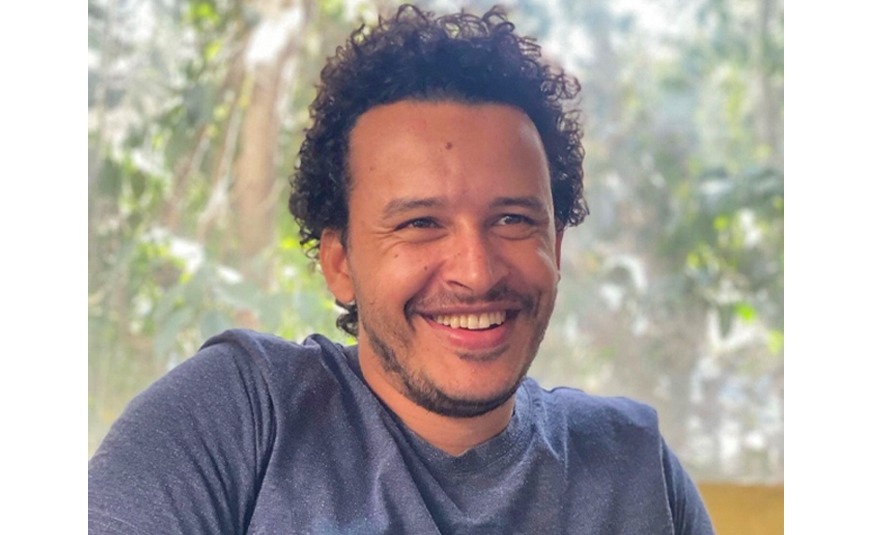 English content
English content

